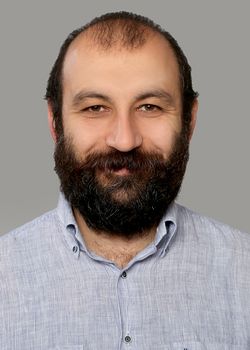Dr. Salim Çevik
Turkey/CATS Visiting Fellow
Areas of Expertise
- Turkey
- Elites and elite change
- Human rights
- Nation- and state-building
- Political Islam / Islamism
- Political systems
- Populism
State and Religion, Islamist Movement, Political Islam, Domestic Politics, Populism, Nationalism, Turkey in the Middle East
Short Curriculum vitae
2020-2023 Associate at the Centre for Applied Turkey Studies (CATS), SWP (Germany)
2016-2017 Post-Doctoral Fellow at Lund University Center for Middle Eastern Studies (Sweden)
2013-2016 Lecturer at Ipek University Political Science Department (Turkey)
2011-2012 Visting Scholar at Lund University Center for Middle Eastern Studies (Sweden)
2009-2011 Research Assitant at Istanbul Bilgi University (Turkey)
2008-2009 Visting Scholar at Columbia University (USA)
SWP Publications
-
Turkey’s Authoritarian Turn: İmamoğlu’s Arrest and Europe’s Strategic Dilemma
Erdoğan expects that Turkey’s rising importance in the security realm will force Europe to ignore his crackdown on the opposition. But without basic democratic foundations, Turkey cannot be a credible security partner, say Hürcan Aslı Aksoy and Salim Çevik.
Point of View, 25.03.2025 -
Turkey’s Authoritarian Drift Accelerates: Istanbul Mayor Faces Imprisonment
Erdoğan’s government is tightening its grip on power, using the judiciary to sideline key opposition figures like Istanbul Mayor Ekrem İmamoğlu. This represents another step toward full authoritarian rule, say Hürcan Aslı Aksoy and Salim Çevik.
Point of View, 26.02.2025 -
From Biden to Trump: Waning Turkish‑American Relationship Demands Greater European Engagement
SWP Comment 2024/C 54, 09.12.2024, 7 Pagesdoi:10.18449/2024C54
-
Turkey’s Reconciliation Efforts in the Middle East
Ambitions and Constraints in a Changing Regional Order
SWP Research Paper 2024/RP 15, 14.10.2024, 31 Pagesdoi:10.18449/2024RP15
-
Turkey after the local elections: How Erdoğan‘s defeat could change domestic and foreign policy
Turkey’s political landscape is shifting. President Erdoğan and his AKP party suffered their biggest defeat in more than two decades at the country’s recent municipal elections. Turkey’s western allies will be looking to see whether the changing tide at home may affect Ankara’s foreign policy.
SWP Podcast 2024/eP 02, 25.04.2024 -
Turkey’s New Cabinet
A Wind of Change in Turkish Politics?
SWP Comment 2023/C 42, 19.07.2023, 7 Pagesdoi:10.18449/2023C42
External publications
-
Syria’s New Order: Centralization by External Consent
in: Arab Center Washington DC, 29.01.2026 -
Turkey’s Emerging Role in Trump’s Gaza Plan
in: Arab Center Washington DC, 17.12.2025 -
Beyond Gaza: The Strategic Fault Lines in Turkey–Israel Relations
in: Arab Center Washington DC, 02.10.2025 -
Erdogan Considers the Kurdish Question: The PKK ceasefire and the Kurdish future in Turkey
in: The New Arab, The New Arab Voice, 09.08.2025 (audio) -
Moderation Without Transformation: Why Turkey Is Failing Syria’s Postwar Transition
in: Arab Center Washington DC, 08.08.2025 -
As the PKK Disbands, Erdoğan Tightens His Grip on Türkiye
in: Bertelsmann Transformation Index, Analysis, 30.07.2025
